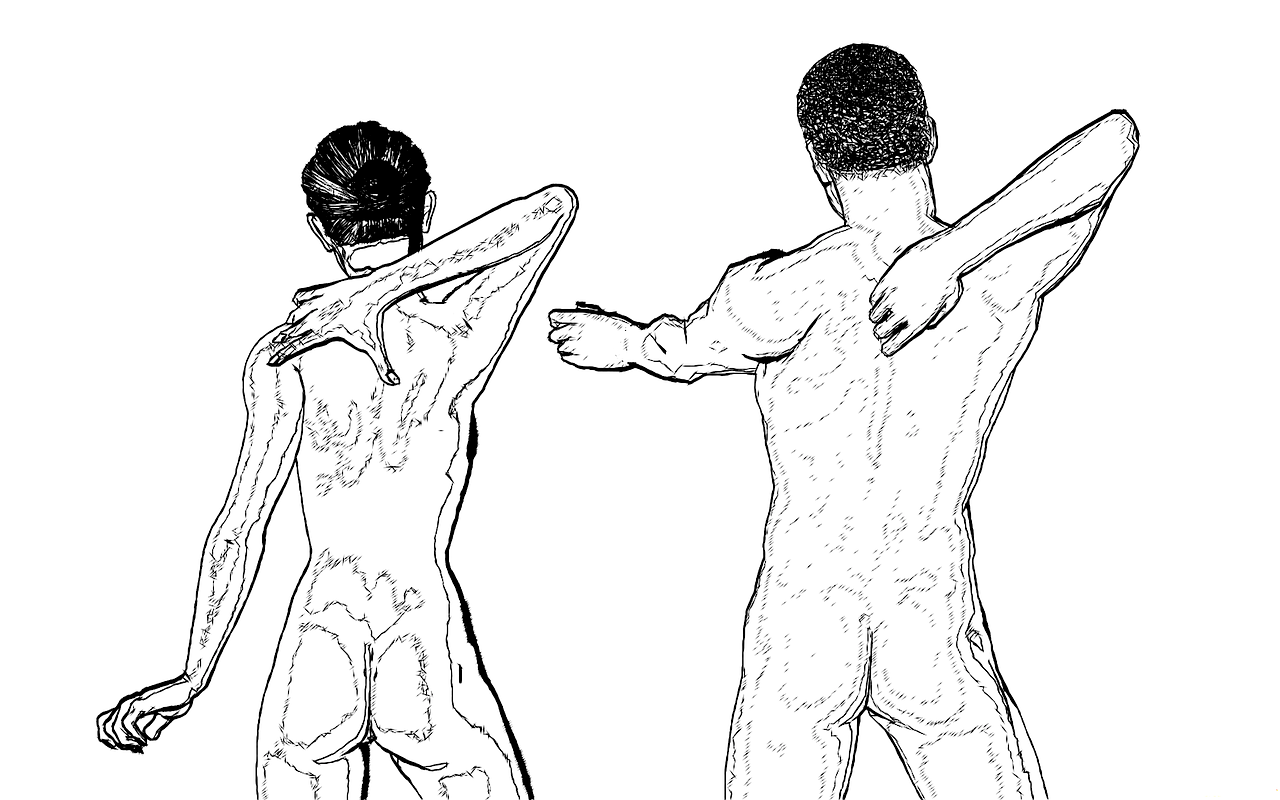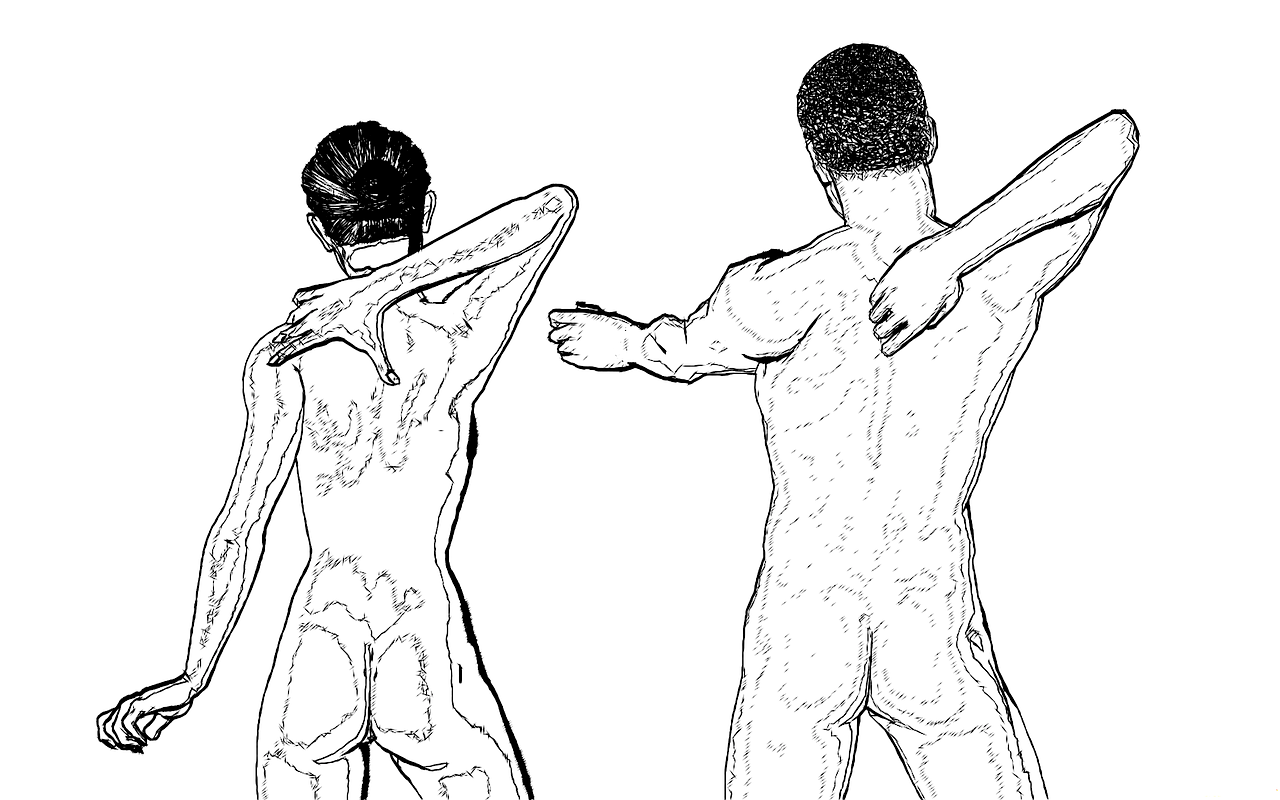
If you often wake up with shoulder soreness after sleeping on your side, you’re not alone. Many people experience discomfort and stiffness in their shoulders from this sleeping position. However, don’t worry, relief is possible. In this article, we’ll explore some effective techniques and remedies that can help alleviate the shoulder soreness and promote a more comfortable night’s sleep. So, say goodbye to those morning aches and pains and get ready to wake up feeling refreshed and pain-free.

Understanding Shoulder Soreness
Shoulder soreness is a common issue that many people experience, especially after sleeping on their side. It can be quite uncomfortable and affect your daily activities. Understanding the causes of shoulder soreness, the effects of sleeping on your side, and differentiating between acute and chronic shoulder soreness can help you manage and prevent this problem effectively.
Causes of Shoulder Soreness
There are several factors that can contribute to shoulder soreness. One of the primary causes is sleeping on your side for prolonged periods, which can put pressure on your shoulder joint and lead to stiffness and discomfort. Other common causes include muscle strain, overuse of the shoulder, poor posture, and even certain medical conditions such as bursitis or tendinitis. Identifying the root cause of your shoulder soreness is crucial in finding the right treatment and preventive measures.

Effects of Sleeping on Your Side
While sleeping on your side is a popular sleeping position for many, it can have some negative effects on your shoulders. The weight of your body pressing against the shoulder joint can cause compression and strain on the surrounding muscles and tendons. This leads to soreness, limited range of motion, and even possible inflammation. If you consistently experience shoulder soreness after sleeping on your side, it may be worth considering adjusting your sleeping position or implementing preventive measures.
Differentiating Acute and Chronic Shoulder Soreness
It’s essential to differentiate between acute and chronic shoulder soreness to determine the appropriate treatment. Acute shoulder soreness typically occurs after an injury or sudden trauma to the shoulder. It can be intense and severe, making it difficult to move the shoulder properly. Chronic shoulder soreness, on the other hand, is characterized by long-term discomfort and stiffness that persists even after adequate rest. Understanding the difference between the two can guide you in seeking the right treatment approach.

Preventing Shoulder Soreness
Prevention is always better than cure, and when it comes to shoulder soreness, there are several preventive measures you can take. Choosing the right pillow is crucial, as it helps maintain proper alignment and reduces pressure on the shoulders. Look for a pillow that provides adequate support to your neck and shoulders, promoting a neutral sleeping position. Additionally, positioning your body correctly while sleeping is essential. Using pillows strategically to support your shoulder and minimize pressure can help prevent soreness. Lastly, wearing supportive sleepwear, such as a shoulder brace or compression sleeve, can provide extra support and stability while you sleep.
Relieving Shoulder Soreness
If you’re already experiencing shoulder soreness, there are several methods you can try to find relief. The first and most important step is to rest and avoid overusing the affected shoulder. Giving it time to heal and recover is essential in preventing further damage. Applying heat or cold therapy can also provide relief. Heat can help relax the muscles and promote blood flow, while cold therapy reduces inflammation and numbs the area. Experiment with both methods to see which works best for you. Additionally, performing stretching and strengthening exercises can help improve flexibility and reduce tightness in the shoulder muscles. Be sure to consult with a healthcare professional or physical therapist to ensure you are doing the exercises correctly and safely.
Seeking Professional Help
If your shoulder soreness persists or becomes chronic, it’s advisable to consult a medical professional. They will be able to diagnose the underlying cause of your shoulder pain and recommend appropriate treatment options. In some cases, physical therapy or chiropractic care may be necessary to address the muscular imbalances or structural issues contributing to your shoulder soreness. These professionals can provide targeted treatment and guidance for rehabilitation, ensuring proper healing and minimizing the risk of future injuries.
Long-Term Strategies for Shoulder Health
To maintain shoulder health in the long run, it’s crucial to implement certain habits and lifestyle changes. Maintaining proper posture throughout the day is essential, as slouching or hunching can place unnecessary strain on the shoulders. Practice good ergonomics by ensuring your workspace is set up correctly, with a supportive chair and desk height that keeps your shoulders relaxed and neutral. Engaging in regular exercise that targets the shoulder muscles can help strengthen and stabilize the joint, reducing the risk of injuries. Focus on exercises that improve flexibility, such as shoulder rolls and stretches, as well as strengthening exercises like shoulder presses and rows. Finally, consider using ergonomic equipment, such as an ergonomic keyboard or mouse, to minimize stress on the shoulders during daily activities.
Taking proactive steps to understand, prevent, and relieve shoulder soreness can greatly improve your overall shoulder health. With the right pillow, proper sleep positioning, and supportive sleepwear, you can reduce the chances of experiencing shoulder soreness after sleeping on your side. Resting, applying heat or cold therapy, and incorporating stretching and strengthening exercises can alleviate existing shoulder soreness. And when necessary, seeking professional help from medical professionals or physical therapists can provide targeted treatment. By maintaining proper posture, engaging in regular exercise, and using ergonomic equipment, you can ensure long-term shoulder health and prevent future instances of shoulder soreness. Remember, taking care of your shoulders is essential for your overall well-being and quality of life.





